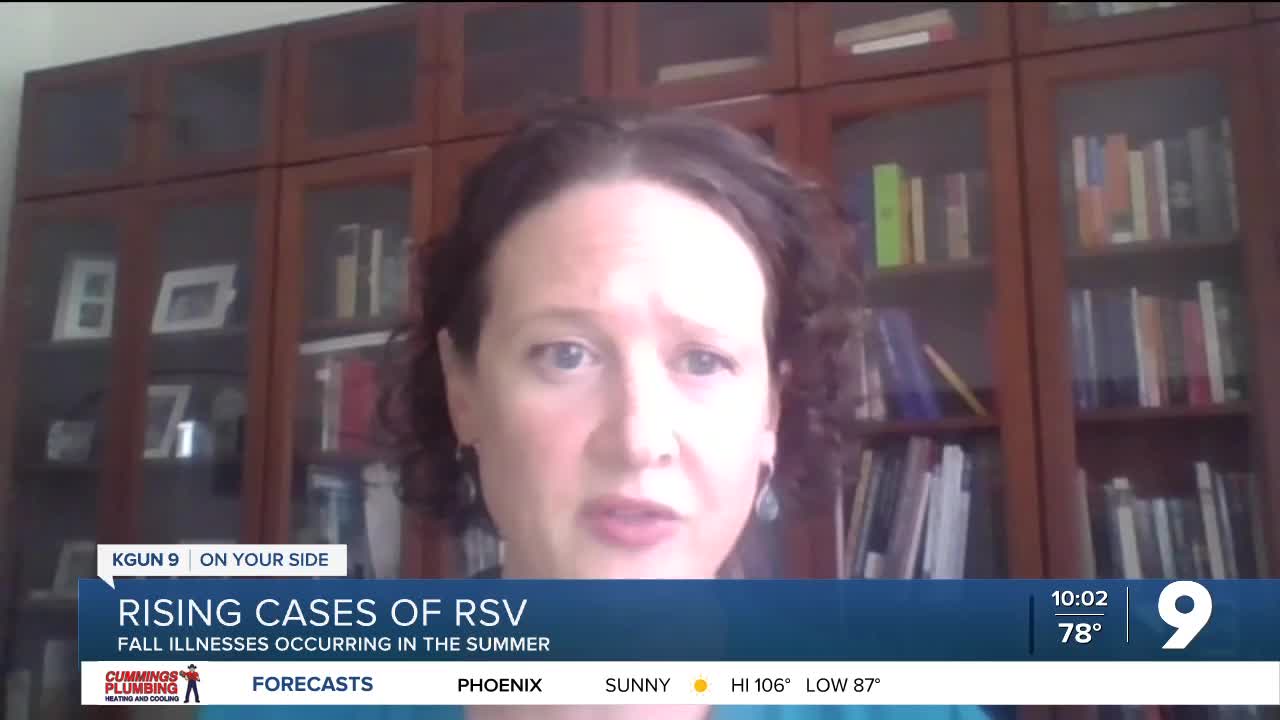TUCSON, Ariz. (KGUN) — Dr. Helene Felman is a pediatrician with Banner University Medical Center, and says she’s seeing more patients these days -- and Felman is not the only one. Aside from COVID-19, there are other respiratory issues popping up at a time that doctors didn’t expect.
“I agree with the American Pediatric Association and CDC that we should all wear our masks indoors. We are also seeing an uptick in Respiratory Syncytial Virus (RSV) in our patients, along with a host of other contagious infections,” Felman said.
RSV season typically runs from November through April, but doctors have seen at least four cases, so far in the last month and those numbers are expected to go up.
“The good news is that most older kids do well, and otherwise healthy children and adults do pretty well with RSV. We are most concerned about our vulnerable premature infants," Felman said.
According to Dr. Felman, at least 5% of hospitalizations for COVID across Banner Hospitals are kids. Nowadays, whooping cough, norovirus and the common cold are also peaking during the summer. It’s a surge that normally happens in the fall. However, there are some ways to keep your kids safe.
"We have seen earlier this year, an outbreak of pertussis in Pima County, which is whooping cough. That was between April and June we had almost 60 cases. Get them vaccinated against COVID and make sure that they see their pediatrician to make sure that they’re vaccinated against all of the other infections that we have vaccines for. For example, at age 11 they need that tetanus and whooping cough booster,” Felman said.
Dr. Felman says that 39% of whooping cough cases in the State of Arizona were transmitted through contact at daycare centers.
"I think because everyone had been protected and staying home and not really in contact with other people. Once we all started getting together, we started to see it in daycare facilities,” Felman said.





